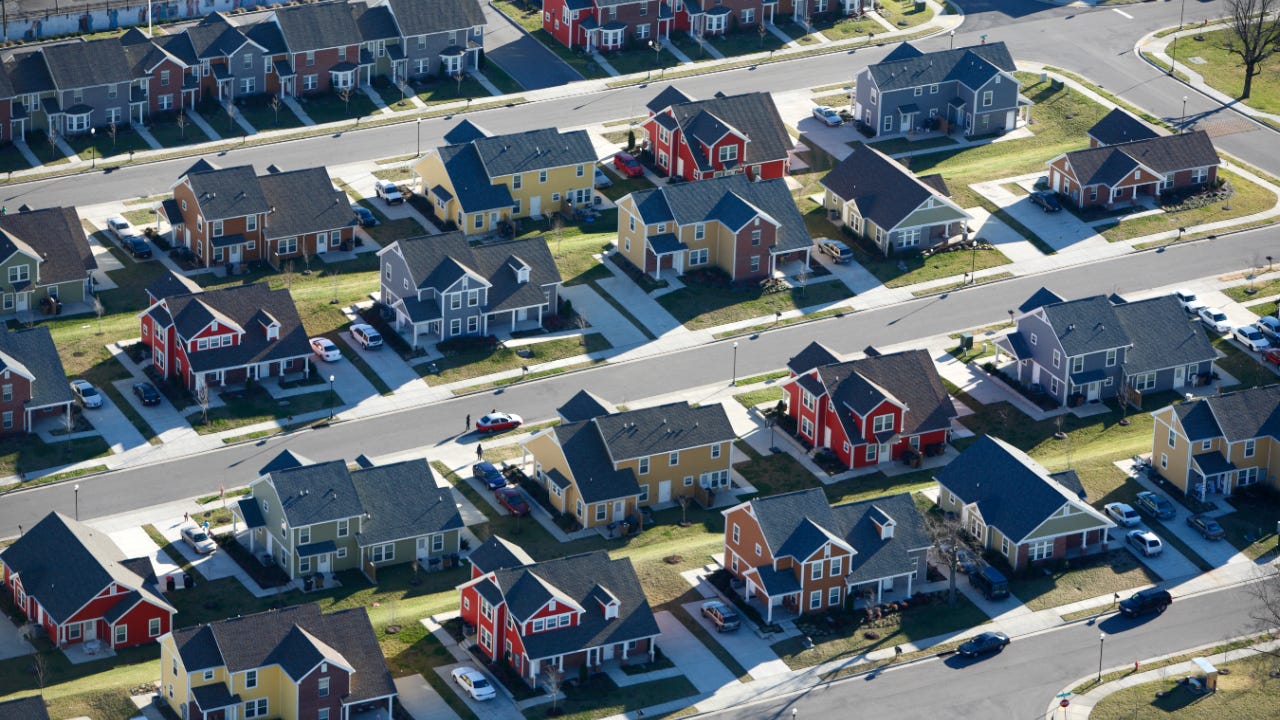Where in the U.S. do homes sell the fastest? Top cities with fewest days on market

It’s tough out there for homebuyers right now. The housing market remains just nuts, with many listings selling in mere days. In February 2022, according to data from RE/MAX, Nashville was the hottest market in the country. Properties there sold in 14 days on average, with many going even faster than that.
Things may cool down a little as mortgage rates and prices continue to rise. But the ongoing acute housing shortage and high demand from buyers is keeping the frenzy going for now, even as unfavorable pressures increase.
Cities where homes spend the fewest days on the market
RE/MAX data shows that in February, the fastest-moving markets had properties sell in less than three weeks on average.
Nashville was the hottest market, with an average listing time of 14 days. Seattle was the second fastest-moving, averaging 17 days. Omaha and Salt Lake City both averaged 18 days, and Cincinnati, Birmingham, Charlotte, Denver, Las Vegas, Manchester and San Francisco were also among the busiest.
But, agents say, these numbers don’t tell the whole story of how quickly things are moving.
“This is by far the most runaway seller’s market we’ve ever experienced,” says Jeff Checko, relocation director with RE/MAX Advantage in Nashville. Sellers holding out for ever-higher offers are weighing down the days-on-market average, he says: “The days on the market that you’re seeing at 14 would be about seven if it weren’t for some sellers just being unbelievably overzealous with their pricing strategies. If everybody was pricing in line, those days on the market would be even less.”
Seattle Realtors are seeing a similar situation. “In our data, we’re looking at more like six days on market at the usual price points in the core neighborhoods,” says Matt van Winkle, CEO of RE/MAX Integrity Northwest.
What’s driving the trend?
The key issue is that new housing supply just can’t keep up with demand, according to Marty Heflin, an adjunct professor of finance at the Owen Graduate School of Management at Vanderbilt University and a partner at Verta Development Company. “We need to get more homes to the market as fast as we can, both on the rental side and the sale side,” he says. “We can’t build them fast enough, and it’s complicated right now by incredible spikes in material supplies.”
Earlier in the pandemic, historically low mortgage rates prompted a huge wave of first-time homebuyers, and the market is still trying to catch up. “We are rooting for a more neutral marketplace,” says Checko. “We are hoping that the rise in interest rates takes enough demand out of the market that supply can catch up a bit.”
So far, however, rising mortgage rates have done little to stanch demand.
How buyers can keep up with the fast pace
Homebuyers need to be ready for a competitive slog, and finding the right real estate agent to work with is especially crucial in this market.
“Not only are we acting as Realtors, in many ways we’re therapists for our clients in terms of helping them stay resolved and be resilient,” Checko says. A crucial part of his responsibility as an agent these days is delivering bad news to buyers and helping them adjust to make the next offer.
“You’ve got to try to take emotion out of the equation and realize that it’s a business transaction,” he says. “Don’t get attached to a home you happen to view and start nesting too much.”
Van Winkle in Seattle agrees. “The buyer has to be prepared to offer more than list price, they have to be prepared to not have any contingencies. They have to be prepared to cover the gap between the appraised value and the purchase price in cash, so they can’t be at the top end of their limit,” he says. “The thing that really helps buyers prepare is really understanding those components, and what a winning offer looks like.”
What can be done about the housing shortage?
Obviously, the long-term solution to the frenzied market is to build more housing. But in the most popular cities, that’s much easier said than done.
“There’s no headway being made to address the shortage. We’re going to have a housing shortage for a long time,” van Winkle says. “We don’t have large tracts that can be turned into housing. All we have to solve our supply problem is increased development of multifamily homes.” But multifamily building projects in Seattle have been contentious in many neighborhoods.
In Nashville, meanwhile, the building bottlenecks take different forms. “Our infrastructure — both our transit infrastructure and our water infrastructure,” says Heflin. “When a development gets built and they can’t get adequate water pressure, because the pipes are so old and scaling, that’s a problem. Hopefully we’ll reinvest the gains of our growth, so we can grow as a healthy city moving forward.”
Checko added that slow permit-approval processes are also a roadblock to getting more housing built.
Bottom line
The real estate market continues to intensely favor sellers, and buyers need to be realistic about what’s needed to compete. Down the road, experts are hopeful that more housing will be built, and economic forces will help stabilize the competition. But for now, the scrum continues.
Why we ask for feedback Your feedback helps us improve our content and services. It takes less than a minute to complete.
Your responses are anonymous and will only be used for improving our website.
You may also like

How to sell my house fast in Maryland

‘We buy houses’ companies in Kansas


